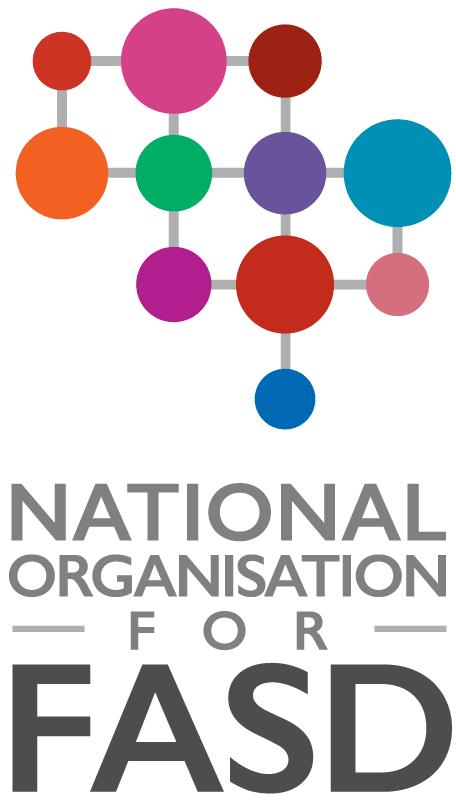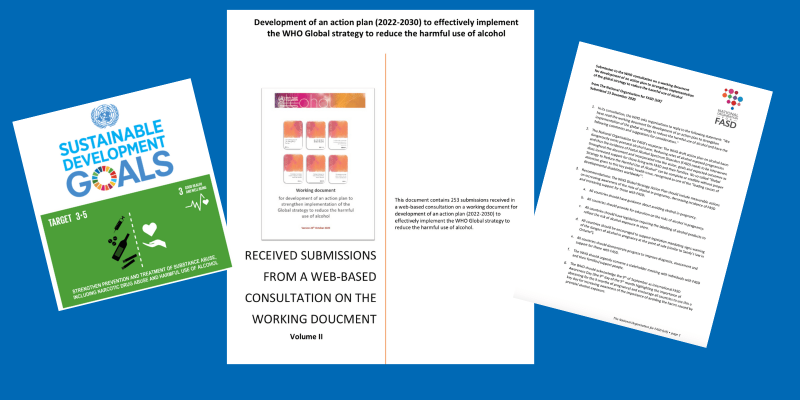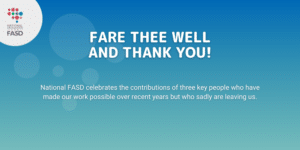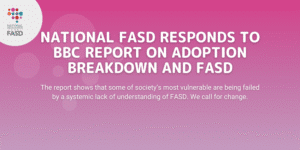National FASD submission to the WHO
The National Organisation for FASD’s October 2020 submission to the World Health Organisation has now been made public as part of a large collection of submissions on the WHO website. The WHO document contains 253 submissions received in a web-based consultation on a working document for development of an action plan (2022-2030) to effectively implement the WHO global strategy to reduce the harmful use of alcohol.
You can see National FASD’s full submission here.
Our key recommendations
The WHO Global Strategy Action Plan should include measurable actions on increasing awareness of the risks of alcohol in pregnancy, decreasing incidence of FASD and increasing support for those with FASD.
- All countries should provide for education on the risks of alcohol in pregnancy.
- All countries should be encouraged to support legislation mandating signs warning of the dangers of alcohol in pregnancy at the point of sale (similar to Sandy’s law in Ontario).
- The WHO should urgently convene a stakeholder meeting with individuals with FASD and their families/support people.
- The WHO should acknowledge the 9th of September as International FASD Awareness Day (the 9th day of the 9th month highlighting the importance of abstaining for the 9 months of pregnancy) and encourage all countries to use this a key day for increasing awareness of the importance of avoiding the harms caused by prenatal alcohol exposure.
- All countries should demonstrate progress to improve diagnosis, assessment and support for those with FASD.
- All countries should have legislation requiring the labelling of alcohol products to reflect the risk of alcohol exposure in utero.
- All countries should have guidance about avoiding alcohol in pregnancy.
By ignoring the alcohol harm from alcohol-exposed pregnancies and Fetal Alcohol Spectrum Disorders in this strategy document, the WHO is positioning itself sorely out of synch with leading medical bodies not just in the UK but around the world. It would be ignoring the latest scientific advice and denying the human rights of those with FASD to be seen and heard in key public health messaging.
National FASD
When entities like the WHO fail to focus on the harm caused by alcohol in pregnancy a) those with FASD are denied a proper understanding of their brain-based condition and thus the appropriate support that can be life-changing for them and b) women and families are failed by not being adequately educated and supported to achieve the best possible outcomes for the pregnancies (in addition to FASD, alcohol exposed pregnancies also have increased risks of infertility, miscarriage, stillbirth, premature birth and Sudden Infant Death Syndrome) (BMA, 2016). It is not enough for the WHO to only cover these risks in publications about pregnancy - the topic also should be directly addressed in strategies on reducing alcohol harm (and those that focus on developmental disabilities) if there is to be a comprehensive approach to addressing the magnitude of this public health challenge.
National FASD



